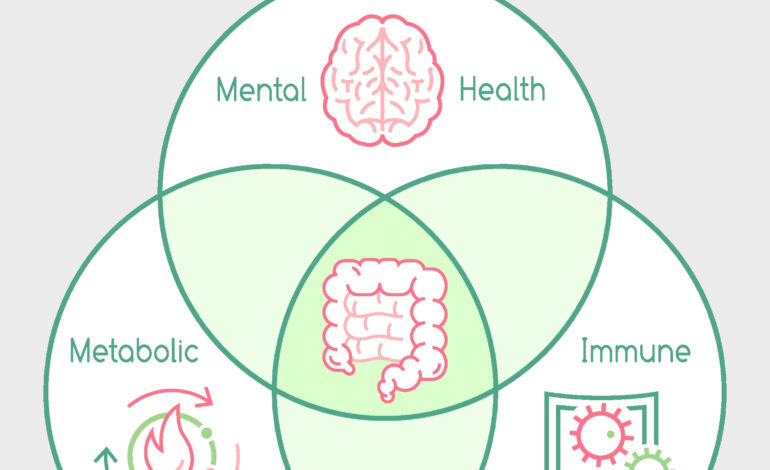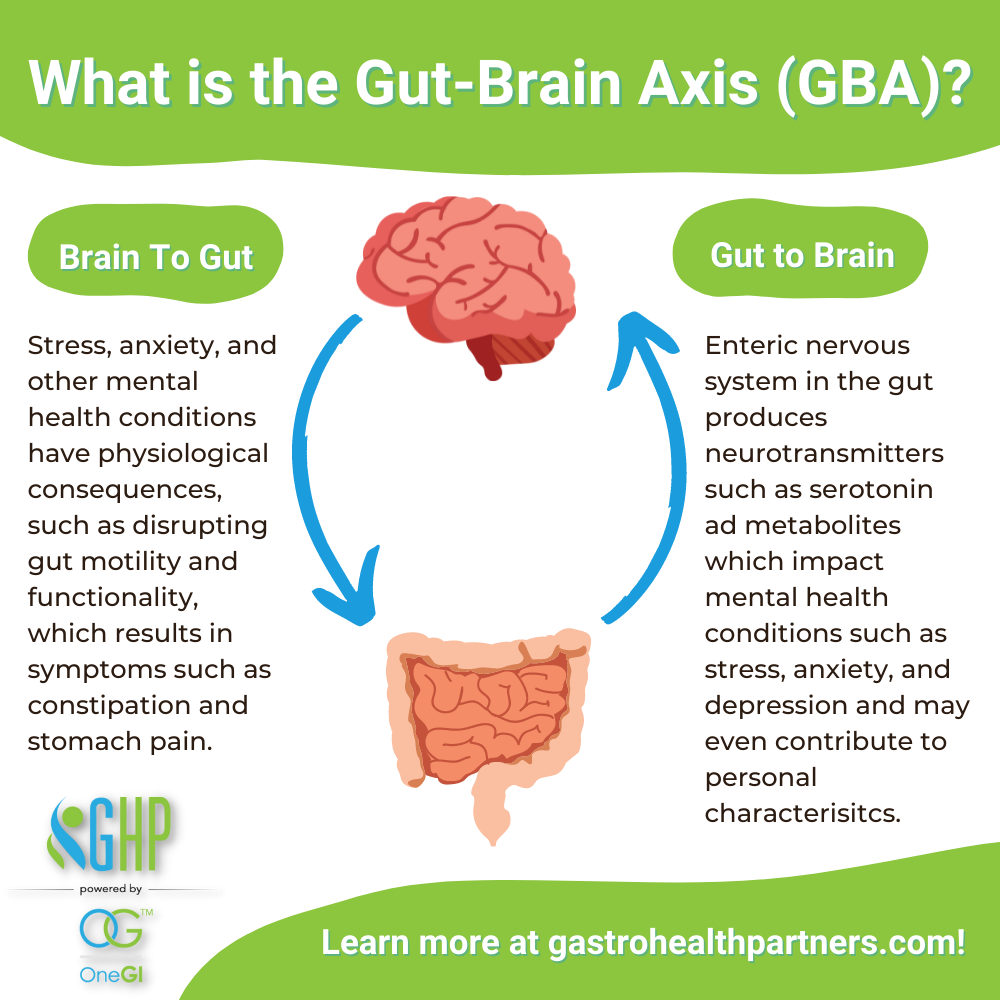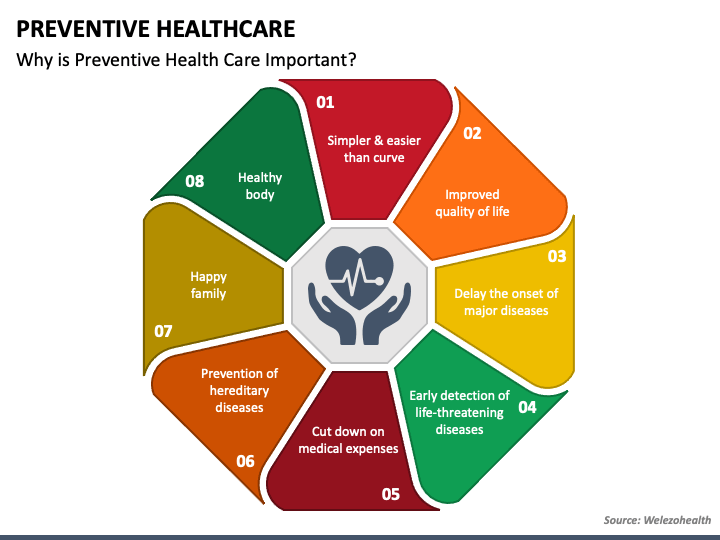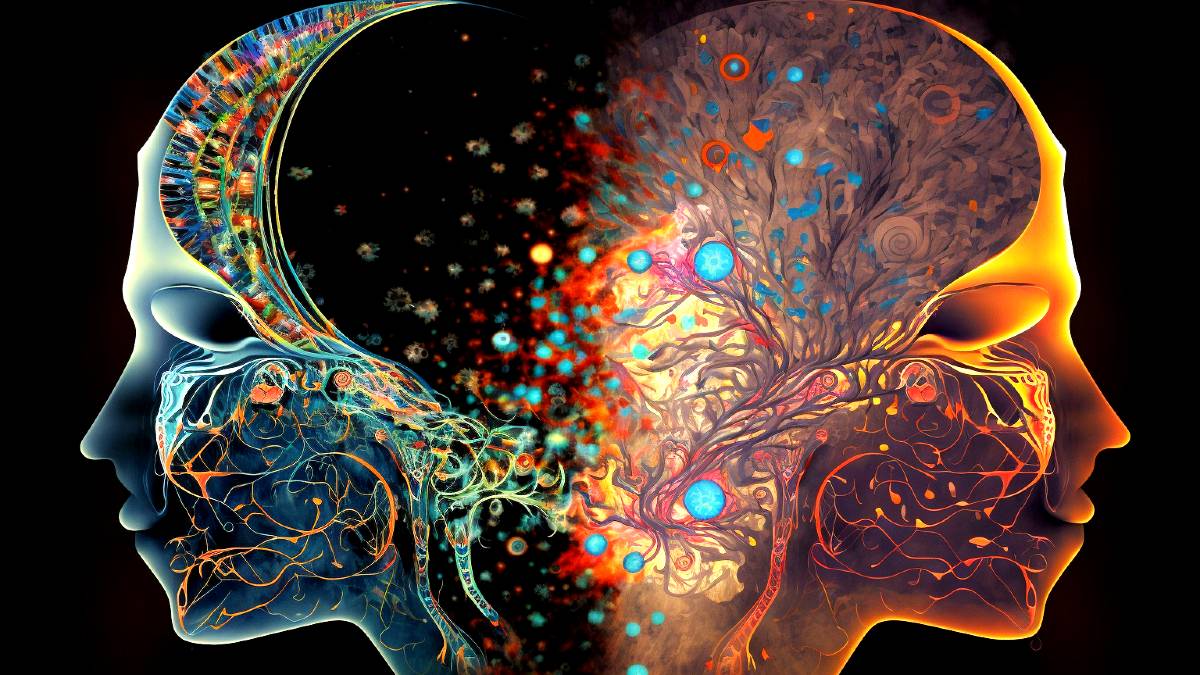The Gut-Brain Connection: What You Need to Know

“`html
The Astonishing Gut-Brain Connection: How Your Digestion Impacts Your Mind
For years, we’ve been taught to think of our brain and gut as separate entities – the brain controlling thoughts and actions, while the gut handles digestion. However, emerging research is revealing a breathtakingly complex and intimate relationship between these two organs, known as the “gut-brain axis.” This isn’t just about feeling butterflies in your stomach when you’re nervous; it’s a far deeper connection influencing mood, cognition, immunity, and overall health.
What Exactly is the Gut-Brain Axis?
The gut-brain axis is essentially a bidirectional communication network linking the central nervous system (your brain) with the enteric nervous system (the “second brain” located in your digestive tract). This connection isn’t just one pathway, but several interacting routes:
- The Vagus Nerve: This is arguably the most well-known route. The vagus nerve is a long cranial nerve that directly connects the brainstem to the gut, carrying signals in both directions. It’s estimated to transmit more information *from* the gut *to* the brain than vice versa!
- The Immune System: A significant portion of your immune system resides in your gut. The gut microbiome (more on that below) heavily influences immune function, and inflammatory signals from the gut can impact brain health.
- Hormones & Neurotransmitters: The gut produces a surprising number of neurotransmitters – chemicals that transmit signals in the brain. Serotonin, for example, is primarily produced *in* the gut (around 90%!), and plays a crucial role in mood regulation. Other hormones like ghrelin (regulating hunger) also play a vital role.
- The Microbiome-Gut-Brain Axis: This refers to how the trillions of microorganisms living in your gut (your microbiome) impact brain function, through the mechanisms mentioned above and more.
Your Gut Microbiome: The Key Player
Let’s dive deeper into the microbiome. It’s a vast ecosystem within your digestive tract comprised of bacteria, viruses, fungi, and other microorganisms. This isn’t just about digestion; these microbes profoundly impact every aspect of your health, including brain function.
- Microbiome Diversity: A healthy gut boasts high microbial diversity – meaning a wide variety of different species. Low diversity is often linked to various health issues, including anxiety and depression.
- Short-Chain Fatty Acids (SCFAs): When beneficial bacteria ferment dietary fiber, they produce SCFAs like butyrate, acetate, and propionate. Butyrate, in particular, nourishes the cells lining your gut, strengthens the intestinal barrier, and even impacts brain function by influencing gene expression.
- Metabolic Byproducts: The microbiome produces various other metabolic byproducts that can affect neurotransmitter production and influence inflammation.
How Does the Gut-Brain Axis Influence Mental Health?
The impact of the gut-brain axis on mental health is a hot topic in research, and the findings are compelling.
- Anxiety & Depression: Imbalances in the gut microbiome have been linked to increased anxiety and depressive symptoms. Specific bacterial strains may be associated with greater risk, while others appear protective.
- Stress Response: The gut-brain axis plays a role in regulating the body’s response to stress. Chronic stress can negatively impact the gut microbiome, creating a vicious cycle.
- Cognitive Function: Studies suggest that a healthy gut microbiome may enhance cognitive function and protect against age-related cognitive decline. SCFAs, particularly butyrate, are implicated in these benefits.
Beyond Mental Health: Other Impacts of the Gut-Brain Axis
The influence of the gut-brain axis extends far beyond mental health:

- Immune Function: As mentioned earlier, the gut microbiome significantly shapes immune responses. A dysbiotic (imbalanced) gut can lead to chronic inflammation and increased susceptibility to illness.
- Autoimmune Diseases: Growing evidence suggests a link between gut imbalances and autoimmune diseases like rheumatoid arthritis, multiple sclerosis, and type 1 diabetes.
- Neurodegenerative Diseases: Researchers are exploring the role of the gut-brain axis in neurodegenerative conditions such as Parkinson’s disease and Alzheimer’s disease. Altered microbiome composition and increased inflammation may contribute to their progression.
Nurturing Your Gut-Brain Axis: Practical Steps You Can Take
The good news is that you can actively influence your gut-brain axis through lifestyle changes:
- Dietary Fiber: Consume a diet rich in dietary fiber – found in fruits, vegetables, whole grains, and legumes. Fiber feeds beneficial bacteria, promoting SCFA production.
- Fermented Foods: Incorporate fermented foods like yogurt (with live cultures), kefir, sauerkraut, kimchi, and kombucha into your diet. These foods contain probiotics – live microorganisms that can help diversify the gut microbiome. Note: Not all fermented products are equal; check labels to ensure they contain live and active cultures.
- Prebiotics: Prebiotics are non-digestible fibers that act as food for probiotics, further supporting their growth. Good sources include onions, garlic, asparagus, bananas, and oats.
- Limit Processed Foods & Sugar: Processed foods and excessive sugar can negatively impact the gut microbiome and promote inflammation.
- Manage Stress: Practice stress-reducing techniques like meditation, yoga, or spending time in nature. Chronic stress disrupts the gut-brain axis.
- Consider Probiotic Supplements (with caution): While probiotic supplements *can* be beneficial, they’re not a one-size-fits-all solution. Consult with a healthcare professional to determine if supplementation is appropriate and which strains might be most helpful for your specific needs.
The Future of Gut-Brain Axis Research
Research into the gut-brain axis is still in its early stages, but it holds immense promise for understanding and treating a wide range of conditions. As we learn more about the intricate interplay between our gut and brain, we can expect to see increasingly targeted interventions aimed at optimizing both physical and mental health.
Disclaimer: This blog post is for informational purposes only and should not be considered medical advice. Always consult with a qualified healthcare professional before making any significant changes to your diet or lifestyle.
“`



